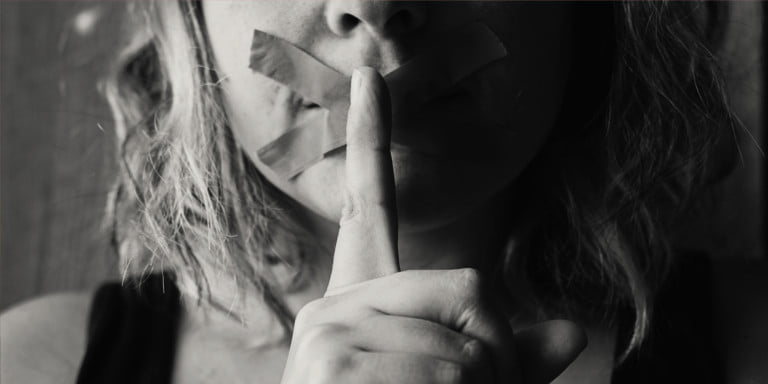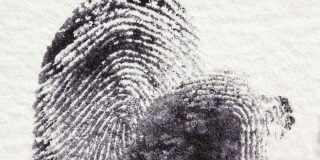One of the most famous stories in the Bible is King David’s sexual abuse of Bathsheba. The account is rather brief. David, who has a demonstrated propensity for violence, is walking on the roof of the palace when he sees a woman undergoing a bathing ritual required by the law. David is consumed with lust. He makes inquiries to determine who the woman is, then sends a servant to bring her to the palace, where he sleeps with her and then sends her home again.
Then comes the complicating factor. Bathsheba discovers she is pregnant and, given her husband Uriah has been away fighting wars for some months, the child must be David’s. David is now gripped with fear that his crime will be uncovered and when his attempts to engineer sexual union between Uriah and Bathsheba fail, David arranges for Uriah to be murdered.
Throughout it all the voice and perspective of Bathsheba are missing. The narrator is telling the story of Israel’s Kings and so the focus is entirely upon David. But this silence has given subsequent generations license to shame Bathsheba. Rarely is it told the way it is. Bathsheba is summonsed to the palace by a king known to be violent, has no option but to sleep with him and is then summarily dismissed. In the popular Christian retelling of the story David’s reputation is protected from the claim that he committed sexual abuse and Bathsheba is seen to have acted shamefully. We are led to believe that Bathsheba willingly went along with David’s plans, or even that Bathsheba seduced David, deliberately exposed herself in order to gain his affections. My son’s youth edition Bible comments like this
Bathsheba found herself in a sticky situation. King David thought she was beautiful, so he invited her to visit the palace. Big mistake. She was married to Uriah, one of King David soldiers away in war. They betrayed Uriah, and Bathsheba got pregnant.… David and Bathsheba suffered severe consequences… Yet God still had a plan for Bathsheba’s life… God loved Bathsheba and forgave her sins, just like he forgives ours when we ask.
Are they serious? Bathsheba’s sin?!. David didn’t invite her to visit the Palace for morning tea and a nudge and a wink about perhaps getting into bed together. He sent his servants to get her, and bring her back so he could sleep with her. Do we honestly think there was an invitation? That Bathsheba had the opportunity to say no? David used his position of kingly power to force Bathsheba to have sex with him and then sent her home hoping he would not be found out.
Our attachment to David as a “man after God’s own heart” seems to stop us from saying what went on here. David sexually assaulted Bathsheba and then murdered her husband to try and cover it up. This was not an isolated act of violence. From start to finish David’s career is bathed in blood. He may have feared taking the life of King Saul, the anointed of God, but he had no qualms taking the lives of others – men, women and children. When he was living in exile among the Philistines he and his men would slaughter every last person in the villages they raided in order to cover up their crime. As he lay on his deathbed he counselled his son Solomon to slaughter his enemies at the palace in order to shore up his throne. This was the man whom God would not allow to build the temple because of the blood he had on his hands.
Surely this is a story for our times. We have been forced to confront the ugly truth that some of the priests we trusted and admired are child abusers; that some of our favourite movie stars and actors are serial abusers. My goodness, I’d have never guessed that Kevin Spacey, Rolf Harris, and Bill Cosby could be serial abusers. The United States has a president who admitted to sexually assaulting women and then explained it away as “locker room talk”. And I’m sure there are more revelations to come.
There are two things that I find particularly disturbing. The first is just how frequently this type of abuse seems to occur when power exists without accountability. There is something particularly dark in the human heart that sometimes leads us into twisted and abusive paths when we think we can get away with it. It seems that unaccountable power not only allows the “bad apples” free reign, but that it erodes the character of the good. We must abandon the mythology that the problem is located in the individual character of a few bad apples and recognise the problem is unaccountable power.
The second is our failure to see the wounds that are held in silence. In the telling of David’s story we’re exposed to his joys and sorrows, his strengths and his frailties, and in the midst of all his violence see someone who has a heart that yearns to do the will of God. Despite the best efforts of our childhood Sunday school stories to turn him into a flawless hero, as we carefully read the story we learn to see him as a multidimensional character. We don’t do the same for Bathsheba and the others who have only a bit part in the story. This gives us the freedom to overlook their pain, the consequences of their abuse, and even to shower them in blame.
We need to be attentive to the voices of the Bathsheba’s among us, to hear their pain, to stand alongside them as they share their stories, go with them on the journey to healing. We have become aware of this in recent days with regards to family and domestic abuse, something for which I’m thankful. I’m hopeful that in the responses to those who have spoken out against Harvey Weinstein and other abusers in Hollywood that we see a turning of the corner in which the power of the abuser will no longer blind us to the reality of the abuse. And I’ve seen it oh so painfully in the story of some of my LGBTIQ friends who continue to be wounded by a church that speaks about them without speaking with them and that does to them what centuries have done to Bathsheba.








Hey Scott,
“…this silence has given subsequent generations license to shame Bathsheba”
In all my years I have never once heard this ugly event even remotely interpreted has having Bathsheba responsible, compliant, or in any way culpable. She was a victim of a sinful, abusive and irresponsible man.
The interpretations I have heard and delivered have spoken of David’s evil perpetrated against an innocent victim thus showing his flawed and carnal life. And yet, despite this most horrific of behaviour, and following his gut-wrenching repentance and sorrow recorded in Psalm 51, God could restore him. The Bible thus does not sugar-coat, diminish, rationalise or whitewash his behaviour but chooses instead to broadcast his evil actions for all to see through generation after generation unlike the culture of hiding, obfuscating, lying, rationalising that exists in some circles today,
Cheers mate, Andrew
Hi Andrew,
I agree wholeheartedly that the Bible does not try to sugarcoat or diminish David’s behaviour. I do think however that Christians often seek to do that. Regarding the interpretation of Bathsheba, my son’s youth Bible that I quoted in the post is a good example of the blame Bathsheba interpretation. In a monograph on Bathsheba published by Princeton University, Sarah Koenig says “because the text is so open and so gapped, the different ways that people have filled the gaps regarding Bathsheba have been wildly and widely different. On one end of the spectrum, she is pictured as a seductress who was at least complicit, if not involved in her husband sticks. On the other end of the spectrum of those who view Bathsheba as an innocent and helpless victim…” (Isn’t this Bathsheba? A Study in Characterisation)
I grew up in church with the impression Bathsheba was at fault in this scenario. Looking back, I can’t imagine how we managed to conclude this from the text. Indicative of a culture that failed to see David’s faults clearly and whitewashed his violent record. Thanks for a clearer and more honest retelling Scott
Well .said Scott. Bathsheba was certainly a victim in this, and totally powerless. At least the Bible does not whitewash David, as Andrew says below, and that’s one of the great strengths of our faith. Our forefathers are real people, warts and all. Pity some of the warts are so big. Psalm 51 certainly does help here.
Thanks for your intelligent and thoughtful input,
Helen
Thanks for the insightful message Scott. I too agree that while the bible doesn’t sugar coat it, like so much abuse, society does. I have sent it on to friends working to reduce gender violence in India.